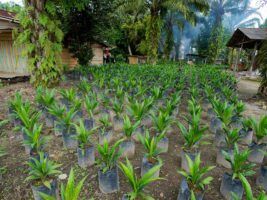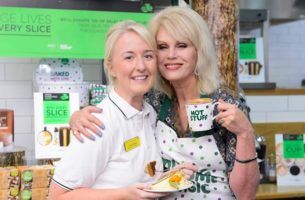

Economy
M&S Launches Nationwide Surplus Food Redistribution Scheme To Support Local Food Charities
Marks & Spencer (M&S) today announced the launch of a new nationwide surplus food redistribution scheme which will connect all its stores with local food charities and accelerate M&S towards its Plan A target of reducing food waste by 20% by 2020.
Food charities keen to participate in the scheme can register online from Monday 12th October. In the initial launch phase, 150 of M&S’s biggest stores will be ready to redistribute surplus food by December, followed by the roll out to all M&S’s owned stores by Spring 2016. Redistributed food will include products nearing their expiry date including fruit, vegetables, bread, cakes and groceries, and will vary according to charity need.
M&S is working in partnership with Neighbourly, the social network for social good, to deliver the scheme through Neighbourly’s website, which will provide a simple process for food charities to register and receive food from their local store. The site will enable M&S to centrally monitor what products are resulting in surplus and how this can be reduced. M&S will be the first major retailer to provide live updates on the number of tonnes of surplus food redistributed. Managing the nationwide scheme through a single platform also removes some of the logistical barriers to redistribution, including ensuring that all those registered have the correct charity and food hygiene credentials in place.
The launch follows a series of trials and pilots in 45 stores aimed at finding the most effective way of redistributing surplus food to ensure it is put to the best possible use. The scheme with Neighbourly was trialled in six stores in the Bristol and Bath area, supporting a number of local food charities including the Bristol North West Food Bank, which supports those in the local community going through periods of crisis, and the Upper Horfield Community Trust, which supports local families with meals from its Community Cafe.
Since April, the six stores have redistributed nearly 4 tonnes of surplus food and charity collections are now occurring on a daily basis.
Further information on how charities can register is available on the M&S page of the Neighbourly website.
Commenting on the launch Louise Nicholls, Head of Responsible Sourcing, Packaging & Plan A at M&S said: “Our key priority is to reduce food waste whilst ensuring that, where there is food surplus, we put it to the best possible use. This is the first nationwide redistribution scheme to provide an innovative, practical solution to surplus food redistribution by building local connections, enabling all our stores to link with local food projects and help support their communities. Our ambition is that this, alongside the work we are doing with our suppliers, will accelerate us towards our Plan A target of reducing food waste in our stores by 20% by 2020.”
Nick Davies, Founder of Neighbourly, added: “Putting food resources to the best possible use is a huge aspect of creating a sustainable planet. At Neighbourly we are proud to work with pioneering businesses like M&S to make that a reality. Whether it means being smarter about how much we produce or order, how we share any surplus, or if necessary how we productively recycle any waste, Neighbourly is committed to help businesses find the best possible solution.”
Dr Richard Swannell, Director of Sustainable Food Systems at WRAP, said “Ensuring that surplus food goes to feed people benefits society, the environment and the economy and WRAP welcomes this initiative from M&S. Our work has identified barriers that effect redistribution, and key among these is establishing good links between retailers and charities that work on a local, and national, level. Having a system by which charities can identify surplus food available in their area is a great way to ensure food reaches those most in need, and avoids needless waste.”


 Environment12 months ago
Environment12 months agoAre Polymer Banknotes: an Eco-Friendly Trend or a Groundswell?

 Features11 months ago
Features11 months agoEco-Friendly Cryptocurrencies: Sustainable Investment Choices

 Features12 months ago
Features12 months agoEco-Friendly Crypto Traders Must Find the Right Exchange

 Energy11 months ago
Energy11 months agoThe Growing Role of Solar Panels in Ireland’s Energy Future




























